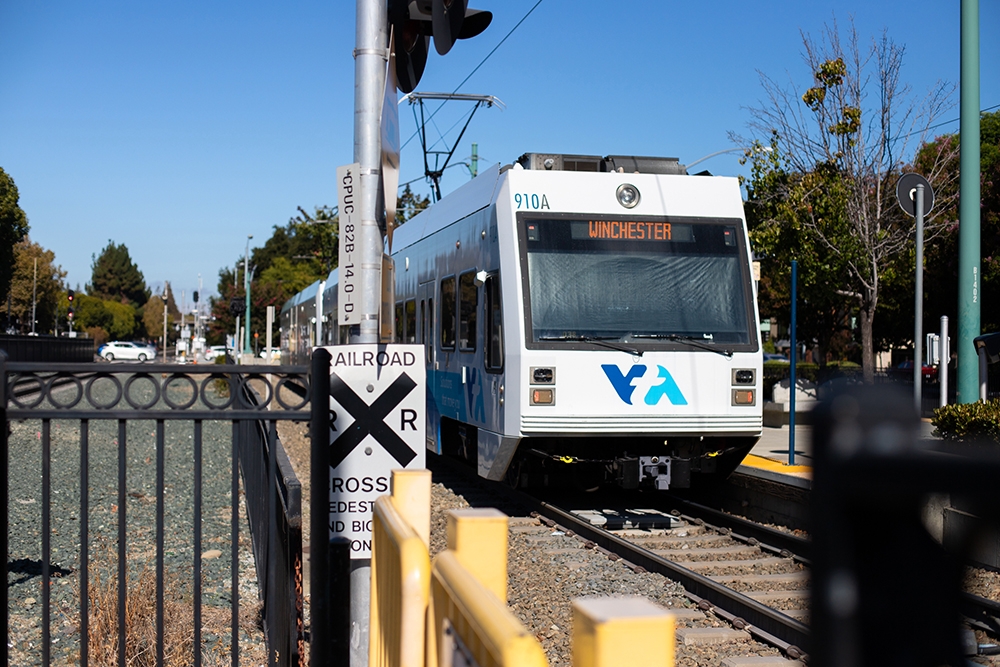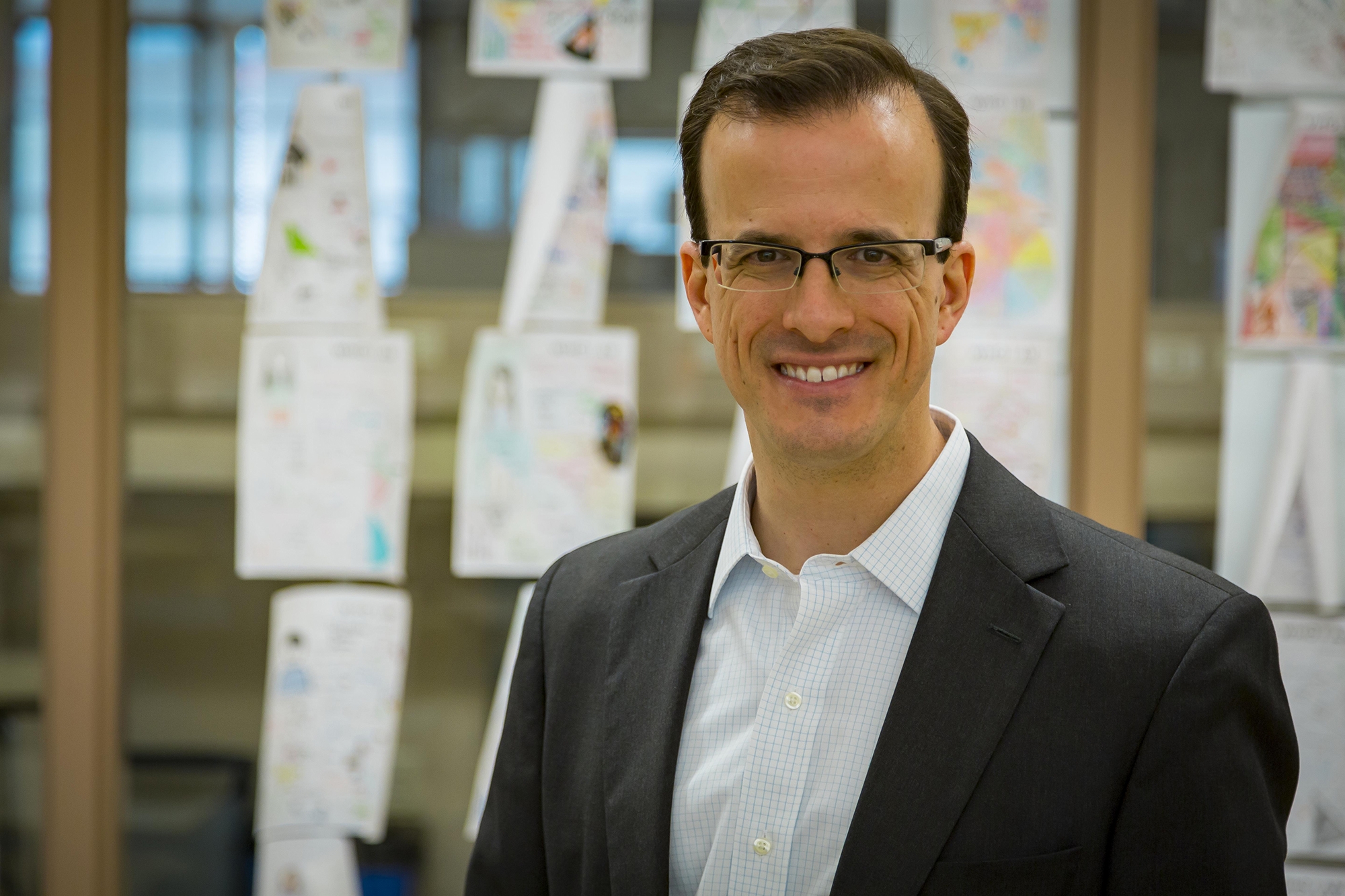Responding to years of complaints about poor governance at the Santa Clara Valley Transportation Authority, state Assemblyman Marc Berman has introduced a bill that would shift oversight of the agency away from politicians and toward appointed experts.
The proposal that Berman, D-Menlo Park, introduced Thursday would also reduce the number of voting members on the VTA board of directors from 12 to nine. Five of them would be appointed by Santa Clara County. The other four would be split between the city of San Jose, which would get two seats, and the other county cities, which would get the other two.
Of the two seats not controlled by San Jose, one would go to a resident of Los Altos, Los Altos Hills, Mountain View, Milpitas, Palo Alto or Sunnyvale. The other seat would go to a resident of Campbell, Cupertino, Gilroy, Los Gatos, Monte Sereno, Morgan Hill, Santa Clara or Saratoga.
In introducing the legislation, known as Assembly Bill 1091, the former Palo Alto City Council member pointed to three separate civil grand jury reports over the past 20 years that have concluded that the VTA's governance structure is a "root cause of the agency's poor performance."
The most recent of these, which came out in June 2019, concluded that the VTA board suffers from a lack of experience and, in many cases, engagement by some directors. The grand jury also found that the board is dominated "in terms of numbers, seniority and influence" by representatives of Santa Clara County and San Jose and that there is "frequent tension" between board members' fiduciary duties to the VTA and the political demands of their local elected positions.
The grand jury also concluded that under the current system, appointees to the VTA board "often lack a basic understanding of VTA's operations and transportation issues, generally."
Berman's proposed legislation seeks to remove some of the politics from the transportation agency by replacing elected directors with appointed members of the public. Under his proposal, these members would be appointed to four-year terms. Each would have to demonstrate relevant professional experience in transportation, accounting or finance, infrastructure or project management and executive management, according to Berman's announcement.
Berman noted that the agency provides "essential public transit options that help get Santa Clara County's two million residents to and from work, school, and home."
"Taxpayers, transit riders, and VTA staff deserve a board of directors that have the interest and ability to dedicate the time necessary to provide appropriate oversight and meet our region's complex transportation needs," Berman said in the announcement.
The debate over VTA governance has become a more urgent topic since the 2016 passage of Measure B, a tax measure that includes $6.3 billion in funding for transportation projects across the county. These include the extension of BART to San Jose, grade separation for Caltrain's electrified cars in Palo Alto, Mountain View and Sunnyvale, and various improvements to streets, highways, expressways and bike routes throughout the county.
Last fall, many city and county officials pushed back against VTA staff after the agency proposed a scenario in which virtually all of the funding over the next 10 years would be devoted to BART extension. After fierce criticism from the county Board of Supervisors and local communities, the VTA pulled away from that scenario in January.
The VTA's process for electing members remains opaque and, at times, contentious. The cities of Palo Alto, Mountain View, Los Altos and Los Altos Hills currently get one seat on the VTA board and they fill that seat on a rotation basis, with each city getting a chance to have one of its elected members on the board.
Despite the critical importance of the VTA in distributing transportation funds and providing transit services, appointments to the board are made in private meetings with no opportunities for members of the public to weigh in. Last month, in one such meeting, the group of cities selected Palo Alto Vice Mayor Pat Burt to represent it on the VTA board for the coming year. That decision followed a tussle among Palo Alto City Council members over whether Burt or council member Alison Cormack should be the board representative.
While Cormack was the council's initial choice for the position, council members voted to nominate Burt after two former council members who had championed Cormack's nomination — Liz Kniss and Adrian Fine — concluded their council terms last December.
If Berman's proposed legislation gets adopted, the VTA reforms would take effect on July 1, 2022.




Comments
Registered user
Embarcadero Oaks/Leland
on Feb 22, 2021 at 10:41 am
Registered user
on Feb 22, 2021 at 10:41 am
"Of the two seats not controlled by San Jose, one would go to a resident of Los Altos, Los Altos Hills, Mountain View, Milpitas, Palo Alto or Sunnyvale. The other seat would go to a resident of Campbell, Cupertino, Gilroy, Los Gatos, Monte Sereno, Morgan Hill, Santa Clara or Saratoga."
And what insures Palo Alto will finally get represented? Nothing.
Remember when our "leaders" urged us to support a tax increase for which we got nothing because the VTA belatedly concluded our shuttle duplicated their service. It would be special if people representing us did their homework.
Plus the VTA still has a Middlefield bus stop 5 car lengths from Embarcadero. Guess what happens to turning and through traffic when the bus stops for several minutes as required regardless of whether anyone's waiting. It looks like something out of Keystone Kops film or a 3d World intersection.
Registered user
Another Palo Alto neighborhood
on Feb 22, 2021 at 12:37 pm
Registered user
on Feb 22, 2021 at 12:37 pm
VTA basically said that they will not improve services in Palo Alto because we have our own shuttles.
Has anyone told VTA that the shuttles are no longer running and we require better services?
Registered user
Another Palo Alto neighborhood
on Feb 22, 2021 at 2:01 pm
Registered user
on Feb 22, 2021 at 2:01 pm
I think it is great that someone is trying to tackle this important, longstanding problem. However, please help me understand how this proposed change would improve the situation. The article describes the change but it doesn't explain how this new structure would solve the problem.
The current VTA Board has 18 members (12 of whom vote). It is dominated by self-serving San Jose politicos. The new Board would have 9 members (a less unwieldy number) but San Jose still gets TWO seats and Palo Alto would now have to share a seat with even more communities (adding Sunnyvale and Milpitas). This would seem to further dilute Palo Alto's voice.
Also, 5 seats will be appointed by Santa Clara County Board. Every single member of that Board has a piece of San Jose in their district.
One more piece of information is relevant, I think. If you look at a VTA heat map of transportation activity in the county, only Palo Alto is as hot as downtown San Jose. This, of course, is due to Palo Alto's proximity to Stanford University and the research park. It strikes me that transportation activity should also be reflected in the board's make-up. Communities like Los Altos, Los Altos Hills, Milpitas (with whom Palo Alto will now share a seat) will have very different transportation interests. Sharing a seat with them makes little sense.
Please help me understand, HOW does this change solve the problem?
Registered user
Mountain View
on Feb 22, 2021 at 5:02 pm
Registered user
on Feb 22, 2021 at 5:02 pm
The VTA is and should be about political oversight by elected leaders who can be held accountable. To kinda quote Mel Brooks in "Blazing Saddles", "We don't need no stinking unelected bureaucrats." What we need is oversight by highly intelligent, elected and MODERATE leaders who are willing to resist politically correct ignorance and highly destructive VTA mandates that destroy the quality of life in SCC.